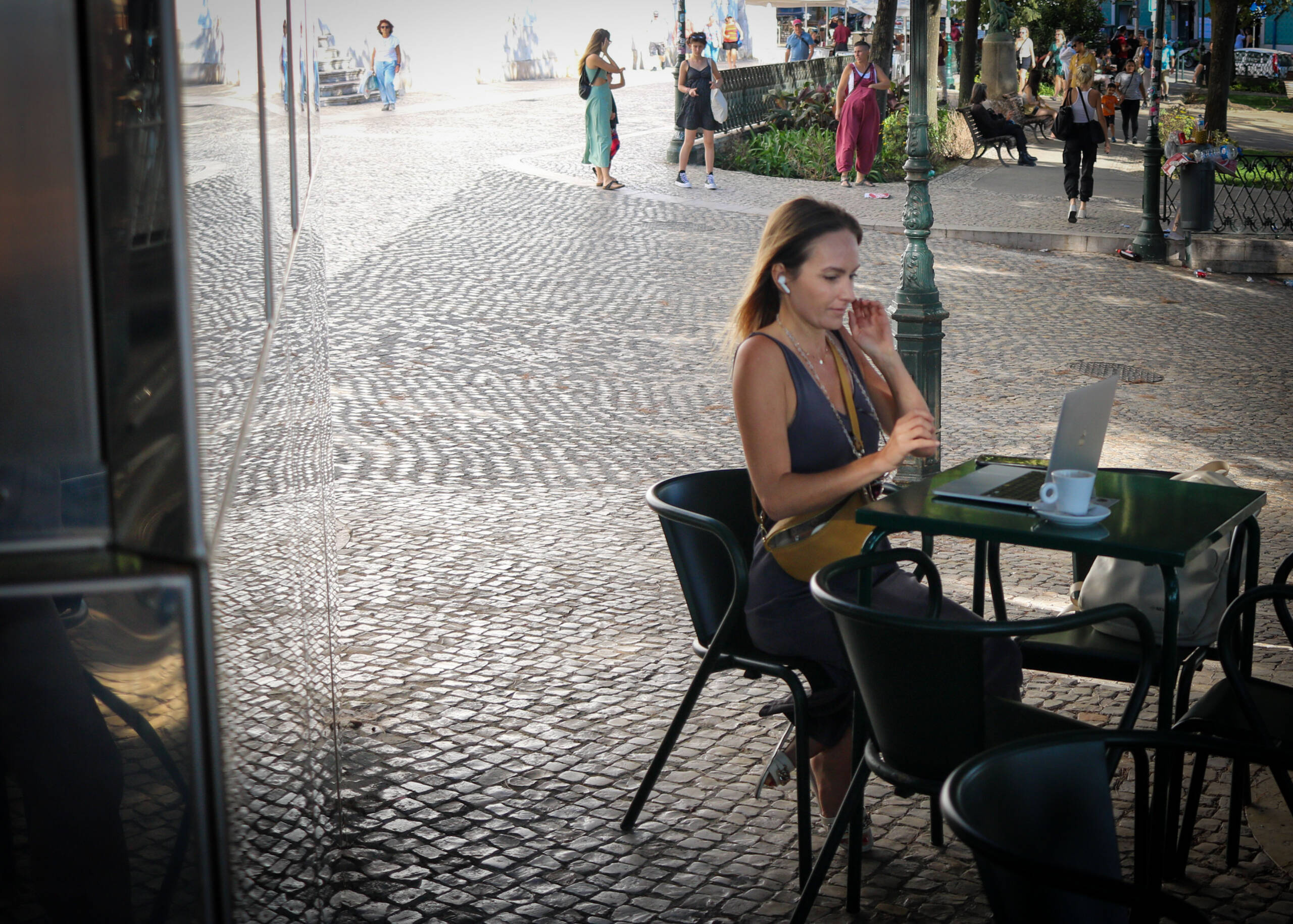There she sits, a woman folded into the rhythm of the city but tethered still to her laptop, earphones in, fingers ready to type. The table is small, glossy green, with a single white espresso cup perched like punctuation beside her work. Around her, Lisbon goes about its afternoon business—cobbled stones glowing in the soft light, passersby meandering in sandals and loose summer dresses, tourists slowing down to look around, locals striding with intent. She’s half-here and half-elsewhere, caught in that liminal space between café life and inbox life.

Vacation guilt sneaks in exactly like this: a moment of stillness, sunshine warming your shoulders, coffee at your side, and yet the itch to check that one email, to respond to that ping, to prove you haven’t fully let go. The world has wired us to feel uneasy when we step away, as if presence is indulgence and absence is negligence. But maybe guilt is misplaced. Maybe the real indulgence is believing we must always be useful.
Lisbon, with its tiles and tramlines, doesn’t demand productivity. It demands attention: the way light scatters across the patterned stones, the sudden music of a street performer, the laughter echoing from a shaded bench. And yet so many of us—myself included—slide into the trap of negotiating with our laptops under a bright sky, promising ourselves “just ten more minutes” before we wander off again. That laptop becomes both shield and leash, a way of staying connected while pretending we’ve disconnected.
What if vacation guilt is nothing more than a trick of habit, the mind refusing to slow down even when the body has already arrived? I look at her, and I see myself too—someone always straddling two realities. The trick is not to banish the laptop, not to scold yourself for sneaking a peek, but to decide that you’re allowed to choose presence over obligation. To finish the espresso, close the screen, and walk into the square. Because the cobblestones will not remember you, but you will remember them. And that, maybe, is the only “work” that matters here.
Leave a Reply